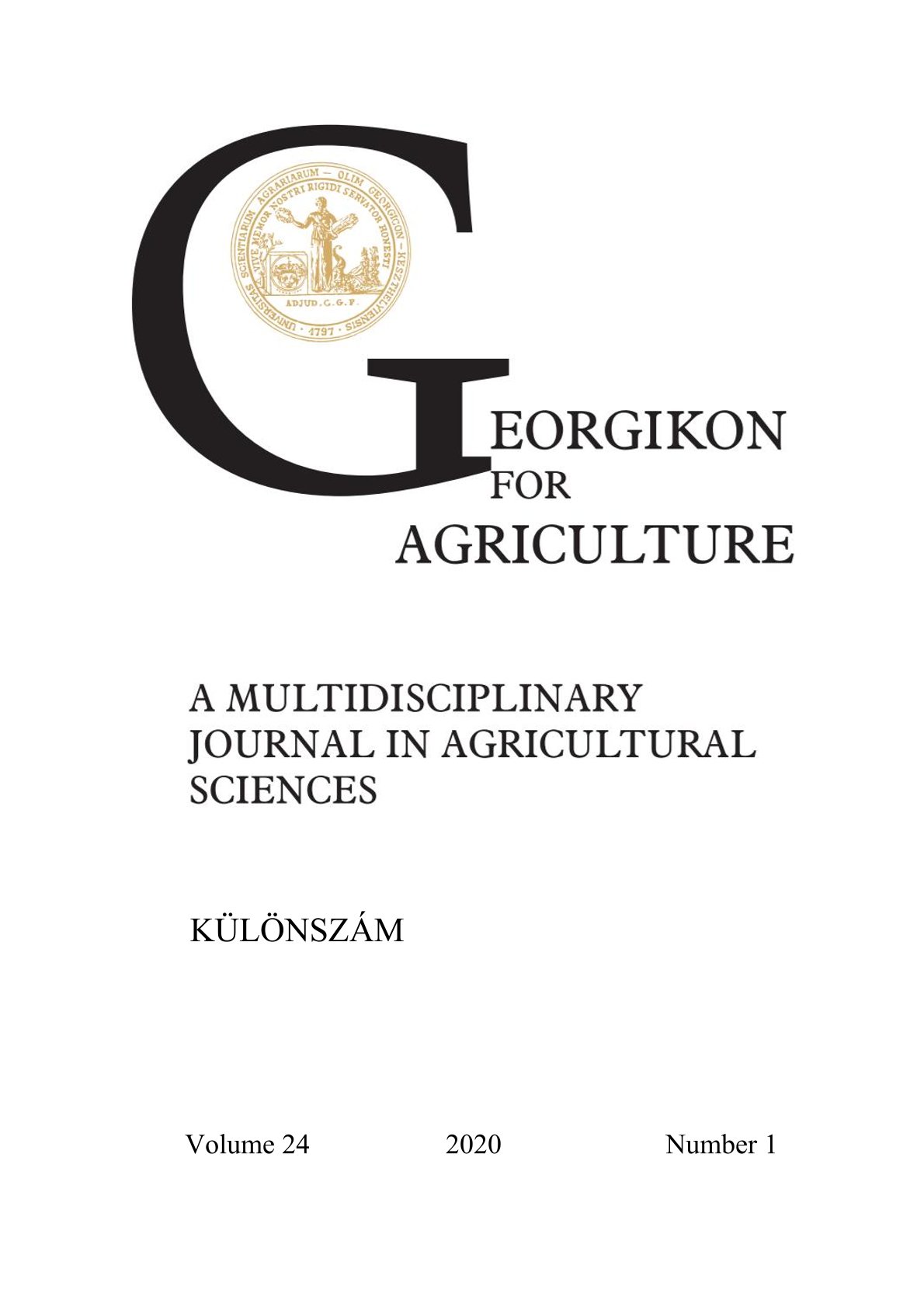Abiotic stress impact on the viability of seed samples of field crop varieties
Keywords:
abiotic stress, temperature, salinity, viability, field crop speciesAbstract
Environmental impacts often determine plant growth and development altering physiological processes. From among abiotic influencing factors temperature and salinity are crucial regarding the viability of crop plants. An assessment study has been done at the Szent István University, Gödöllő to evaluate and identify the impact of various levels temperature as well as ascending concentrations of NaCl on the germination of seed samples of field crop species. Five field crop species (winter wheat Triticum aestivum L, maize Zea mays L, sunflower Helianthus annuus L, millet Panicum miliaceum L and sorghum Sorghum bicolor L) originated from two countries – Hungary and Pakistan - were involved in the study. The results obtained support the known evidence, that the five examined species performed well under optimum conditions for germination, e.g. 20 oC temperature and 0 salinity. On the other hand, low temperature and high salt concentration resulted in no germination regardless to the crop species. From among the field crop species wheat proved to be the most tolerant to NaCl affects, with millet next to that. Sorghum was found to be the most vulnerable crop in the study. The geographic origin of the crops was remarkable. Pakistani and Hungarian wheat crops both performed well. Similar results were obtained with both sunflower crops. Pakistani sorghum and millet proved to be better than the Hungarian ones. Hungarian maize had better performance than the Pakistani hybrid.
References
Bojović, B., Đelić, G., Topuzović, M. and Stanković, M. 2010. Effects of NaCl on seed germination in some species from families Brassiceae and Solanaceae. Kragujevac J. Sci. 32. 83–87.
FAOSTAT 2017. https://www.fao.org/faostat/
Hohls, T. 1995. Analysis of genotype environment interactions. South African J. Sci. 91. 121–124.
Jolánkai, M., Nyárai, H. F., Tarnawa, Á., Klupács, H. and Farkas, I. 2008. Plant and soil interrelations. Cereal Research Communications, 36. Suppl. 7–10.
Khalid, M. 2019. Evaluation of salt tolerance of field crop species on the viability in a provocation in vitro trial. Thesis work. SIU Gödöllő.
Pepó, P. 2010. Adaptive capacity of wheat (Triticum aestivum L.) and maize (Zea mays L.) crop models to ecological conditions. Növénytermelés. 59. Suppl. 325–328. (in Hungarian)
Rana Munns, R. A. 2006. Approaches to increasing the salt tolerance of wheat and other cereals. Journal of Experimental Botany 1025–1043. https://doi.org/10.1093/jxb/erj100
Sváb, J. 1981. Biometriai módszerek a kutatásban (Biometric methods in research - in Hungarian). Mezőgazdasági Könyvkiadó, Budapest.
Szabolcs, I. 1974. Salt affected soils of Hungary. 1:500.000 scale soil map series. Hungarian Academy of Sciences, Soil Science and Agrochemistry Institute, Budapest.
Tobeh, A. and Somarin, J. S. 2012. Low temperature stress effect on wheat cultivars germination. African Journal of Microbiology Res. 6. 6. https://doi.org/10.5897/AJMR11.1498
Water and Power Development Authority (WAPDA), 1985. Position paper on water-logging and salinity. Planning and development Division, Govt. of Pakistan, 27.
Downloads
Published
Issue
Section
License
Copyright (c) 2020 Khalid Maryam, Tarnawa Ákos, M. Kassai Katalin, Jolánkai Márton

This work is licensed under a Creative Commons Attribution-NonCommercial-NoDerivatives 4.0 International License.
Cikkre a Creative Commons 4.0 standard licenc alábbi típusa vonatkozik: CC-BY-NC-ND-4.0. Ennek értelmében a mű szabadon másolható, terjeszthető, bemutatható és előadható, azonban nem használható fel kereskedelmi célokra (NC), továbbá nem módosítható és nem készíthető belőle átdolgozás, származékos mű (ND). A licenc alapján a szerző vagy a jogosult által meghatározott módon fel kell tüntetni a szerző nevét és a szerzői mű címét (BY).




